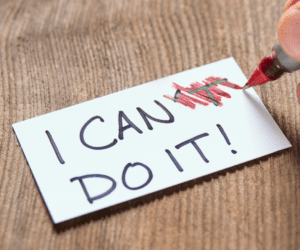Early to bed and rise
Early to bed and early to rise is a well-known phrase that has been around for centuries, but it still holds true today. Not only does getting up early give you more time in the day to be productive, but it also helps improve your overall wellbeing and happiness. Studies have shown that people who get up earlier tend to be in better moods, have higher levels of energy, and are more productive.
Additionally, getting enough sleep is essential for good health and mental clarity. By making sure you go to bed at a reasonable hour and get up early the next morning, you can ensure that your body is getting the rest it needs while still having plenty of time during the day for activities that make you
happy.
Early to bed, early to rise is a popular saying that has been around for centuries. It is a condition of happiness that can be applied in many different aspects of life. By sleeping early and waking up early, we can increase our productivity, focus and energy levels. We can also improve our physical health by getting enough rest and avoiding late nights. Additionally, we can also improve our mental health by having more time to think and reflect on the important things in life.
By following this condition of happiness, we will be able to experience greater joy and satisfaction in life. We will be able to make the most out of each day by being well-rested and energized from the start. We will also be able to take control of our lives by setting goals for ourselves and working towards them with renewed vigor each morning.
If you’re looking for solutions to help you wake up early and rise early, here are some strategies that may be helpful:
Gradual adjustment: Rather than abruptly changing your sleep schedule, try gradually adjusting your bedtime and wake-up time. Start by setting your alarm 15 minutes earlier each day until you reach your desired wake-up time. This allows your body to adapt to the new schedule more comfortably.
Consistent sleep schedule: Establish a consistent sleep routine by going to bed and waking up at the same time every day, including weekends. Consistency helps regulate your body’s internal clock and promotes better sleep quality.
Create a sleep-friendly environment: Make sure your bedroom is conducive to sleep. Keep the room cool, dark, and quiet. Consider using blackout curtains, earplugs, or white noise machines to create a comfortable sleeping environment.
Wind down before bed: Create a relaxing routine before bedtime to signal to your body that it’s time to sleep. Engage in activities such as reading a book, taking a warm bath, practicing relaxation techniques, or listening to calming music to help you unwind.
Limit exposure to electronic devices: The blue light emitted by electronic devices can interfere with your sleep. Avoid using phones, tablets, or computers right before bed. Instead, opt for activities that promote relaxation and prepare your mind for sleep.
Morning light exposure: Open your curtains or go outside to expose yourself to natural light in the morning. Sunlight helps regulate your body’s internal clock and can promote alertness and wakefulness.
Avoid stimulants: Limit the consumption of caffeine, nicotine, and alcohol, especially in the evening. These substances can disrupt your sleep patterns and make it harder to wake up early.
Accountability and support: Share your goal of waking up early with a friend, family member, or colleague who can help hold you accountable. Consider finding a morning accountability partner who has similar goals to help motivate each other.
Set a motivating morning routine: Plan enjoyable activities or tasks for the early morning hours that will give you something to look forward to. It could be exercise, meditation, reading, pursuing a hobby, or any activity that energizes you and starts your day on a positive note.
Be patient and persistent: Adjusting to a new sleep schedule takes time and effort. Be patient with yourself if you encounter setbacks or find it challenging initially. Stay committed to your goal, and over time, your body will adjust to the new routine.
Remember, everyone’s sleep needs and preferences are different. It’s important to find a sleep schedule that works best for you and supports your overall well-being.
Pros
- Increased productivity with Waking up early to start the day gives time for planning, organising, and completing tasks.
- Sufficient and restful sleep is crucial for maintaining good mental health and overall well-being.
- Morning workouts can boost metabolism, increase energy levels, and contribute to weight management.
- Rising early gives you a chance to incorporate self-care practises into your routine, such as meditation, journaling, reading, or enjoying a quiet moment before the busyness of the day begins.
Cons
- Early sleep schedules can be challenging for those who are used to staying up late. It’s taken time for your body to adapt to the new routine in your life.
- Going to bed early may limit your availability for evening social activities. It can require adjustments in your social life.
- Certain professions or lifestyles, such as night shifts or creative industries that thrive in the late hours, make an early-to-bed and early-to-rise routine difficult.
- Going to bed early means sacrificing some of the evening leisure time that others may enjoy.
-
What is the best way to transition from a “normal” sleeping pattern to waking very early and going to bed early?
Gradually adjust your sleep schedule by waking up 15 minutes earlier each day until you reach your desired wake-up time.
Develop a relaxing bedtime routine to signal to your body that it’s time to wind down.
shut down your electronic devices early to bed.Expose yourself to natural light in the morning to help regulate your body’s internal clock.
Adjust your daily routine, including meal times, exercise, and work or study schedule, to align with your new sleep schedule.
Stay consistent and patient, as it takes time for your body to adjust to a new sleep schedule.
-
What are some really effective 30-day programs for waking up early?
The 30-Day Gradual Approach:
Start by setting your alarm 15 minutes earlier than your current wake-up time.
Each day, gradually decrease your wake-up time by 15 minutes until you reach your desired early wake-up time.
Use the extra morning time to engage in activities that energize you and set a positive tone for the day.The 30-Day Sleep Schedule Reset:
Determine your ideal wake-up time and calculate the recommended sleep duration (usually 7-9 hours for adults).
Gradually adjust your bedtime and wake-up time by 15 minutes each day until you reach your target sleep schedule.
Stick to this schedule consistently for 30 days, even on weekends, to establish a new sleep routine.
Remember, the effectiveness of any 30-day program relies on your commitment and consistency. -
What is the healthiest time to go to bed and wake up?
Pay attention to your body’s natural cues and signals. If you consistently wake up feeling refreshed and energized, and maintain good energy levels throughout the day, it’s an indication that your sleep schedule is likely healthy for you.
Remember, these recommendations serve as general guidelines. It’s important to find a sleep schedule that works best for you and supports your overall well-being
-
How do I rise out of bed earlier?
waking up earlier is a habit that takes time to develop. Be patient and consistent with your efforts and listen to your body’s need for adequate sleep. Over time, your body will adjust, and waking up earlier will become easier and more natural.




Leave a Reply